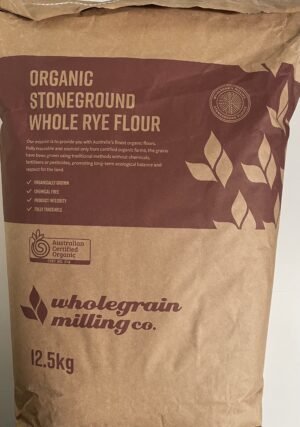The digestive benefits of sourdough are becoming increasingly recognized in a world where digestive issues often stem from poor dietary choices.
Many processed and refined foods lack the necessary nutrients and can disrupt our digestive health. However, sourdough, with its unique fermentation process, offers numerous benefits for our digestive system.
This article will delve into how the humble sourdough can be a game-changer for your gut health.
Sourdough Spatula: The Best Ally for your Homemade Bread.
Table of Content
Enhanced Digestibility through Fermentation
A key factor in the digestive benefits of sourdough is its fermentation process. Unlike conventional bread, sourdough undergoes a natural fermentation process where beneficial bacteria and wild yeasts break down the starches and gluten in the flour.
This breakdown means that the bread is partially digested before it even reaches your stomach. For many people, this can translate to easier digestion and less bloating or discomfort after eating.
The reduced gluten content in sourdough makes it a friendlier option for those who are sensitive to gluten but not suffering from celiac disease.
Nutrient Absorption and Gut Health
Another aspect of the digestive benefits of sourdough is its positive impact on gut health and nutrient absorption.
The fermentation process reduces the presence of phytic acid, a substance commonly found in grains that can inhibit the absorption of minerals like iron, zinc, and calcium.
By decreasing phytic acid levels, sourdough makes it easier for your body to absorb these vital nutrients. Additionally, the lactic acid bacteria present in sourdough can help to balance the gut microbiome, promoting a healthier digestive system.
Lower Glycemic Index for Better Blood Sugar Control
The digestive benefits of sourdough extend to its lower glycemic index (GI) compared to regular bread.
Foods with a lower GI are digested and absorbed more slowly, which leads to a gradual rise in blood sugar levels.
This is particularly beneficial for people with diabetes or those trying to manage their blood sugar levels. Sourdough’s lower GI can help prevent the sharp spikes in blood sugar that are often associated with eating highly processed breads.
The digestive benefits of sourdough make it a smart choice for anyone looking to improve their gut health and overall well-being.
From its enhanced digestibility and improved nutrient absorption to its lower glycemic index, sourdough offers a range of health advantages.
Incorporating sourdough into your diet can be a delicious way to support your digestive system and enjoy a healthier lifestyle.






